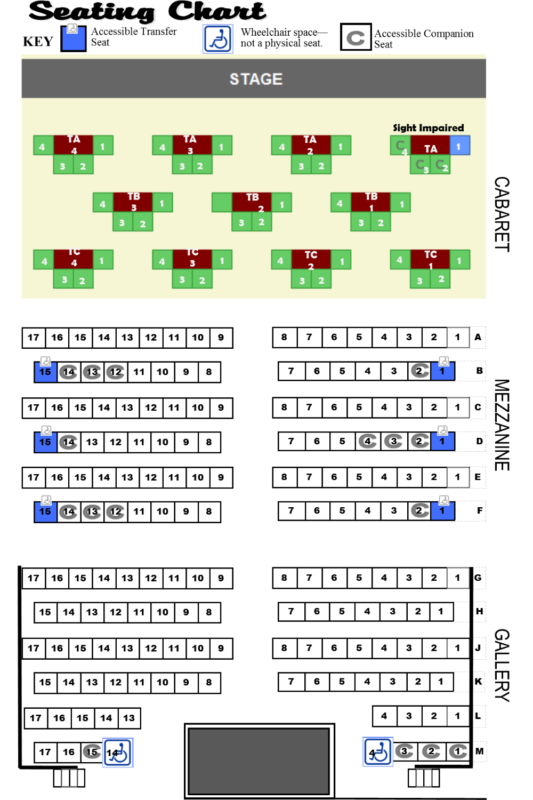Everything You Need to Know and Then Some
Learning theater etiquette will enable you to avoid embarrassment. There are certain unspoken rules that apply to theatre attendance that only those that have been initiated into the process know. Avoid the risk of seeming boorish by learning about the proper way to manage your behavior in a performance to increase your level of enjoyment and participate as a courteous audience member.
Above all, it is important to remember that the actors on stage can see and hear you at the same time you can see and hear them. Be respectful of the actors and your fellow audience members by being attentive and observing these guidelines. Going to a show is a special experience, one that you will remember for a lifetime. Everyone in the audience has been looking forward to seeing the performance just as much as you have, so it’s very important to remember the rules of theater etiquette. That way, everyone can have a good time.
When You Buy Your Tickets
Purchasing a ticket is required for a live theatre performance and it will be for a specific date and show. Be sure to check your ticket when you buy it, because tickets are not refundable and cannot be exchanged if it is less than 48 hours before the show.

Dress Code
Our patrons usually dress in business casual attire for most performances and in cocktail attire for Opening Nights. If you are celebrating something special, by all means, dress for the occasion. However, we’d rather have a patron come in jeans than not come at all out of concern for how they are dressed.
Always remove your hat. Ladies, if you must wear a hat and leave it on, make sure it is small and will not block anyone’s view. Failure to comply may result in relocation to a wall seat or ejection from the auditorium.
While we keep the thermostat set at 70-74 degrees (F), it is still frequently chilly in the auditorium, even in the summer months. Bring a sweater, jacket or sport coat. If you forget, or find you need something after arrival, HLT has shawls and throws for loan.
Arrival and Attendance
Arrive at least 30 minutes before the performance and no later than 15 minutes before the start of a performance. Stay with your family or group at all times. Wait for the ushers to help you find your seat — they’ll want to see your ticket to make sure everyone is in the right place. Be sure to sit in the seat you are given so that you don’t cause confusion for other audience members.
What should I do if I arrive late? Don’t push your way into the theatre or demand to be seated immediately. HLT’s policy is to seat latecomers at intermission. However, if possible, the ushers and the house manager will try to work out when is the next moment when people entering the theatre will cause the least disruption. Usually this is during a scene break or the applause break at the end of a song. Just alert the usher that you have arrived late and ask to be seated. The usher will usually peek into the house, and escort you to your seat when the time is right. There is a safety issue here, too. Plunging into a darkened theatre could lead to a trip or fall; ushers with flashlights will help you avoid that. If your seat is down near the stage, you also may wish to stand at the back of the theatre until intermission. Warning: Some shows, especially comedies, will incorporate latecomers into the performance. The Blue Man Group in Orlando stops the show and puts a spotlight on arrivals being seated after the show starts. Note: Please check the curtain times on your tickets! Beginning October 1, 2012, most evening shows start at 7:30 PM and matinees at 2:30 PM, but there are ocassional exceptions. Do not argue with the ushers about having to wait, they are just doing their job. Highlands Little Theatre has a television screen in the lounge showing the performance while you wait.
Be seated and listen to the announcements before the show. While you might see it as a commercial, we see it as communicating. Yes, we tell you about upcoming shows and events we hope you will buy tickets for and attend. But, we also relate safety information and sometimes include information important to the upcoming performance. Show the same respect you would want if you were up there doing it.
At most performances, you will receive a printed program. Be sure to arrive early enough to read the program, so that you will have an idea of what to expect in the show. Also, you will find the names and information about people who are performing and helping to put on the show. Read the credits to learn more about the people and the performance. It will make the show more enjoyable and you’ll learn things that might surprise you.
During the Show
Leaving during the performance is considered highly disrespectful. It is not the same as going to see a movie. Patrons pay high fees to enjoy the theater experience, and leaving in the middle of a performance should never be done except in an extreme emergency. It may also be dangerous in the dark after the show starts. Visit the restroom before the performance begins. Unless there is an emergency, plan to stay seated during the performance. Wait until the house lights come up before attempting to leave.
Turn off your cell phone and any other electronic devices (iPods, Blackberries, etc.), or better yet, leave them in your car. The light and noise from cell phones and other electronic devices is a big distraction, so please, if you must Tweet, post to Facebook or text message, sit in a wall seat on the back row or in the lounge. Similarly, make sure that any watch alarm or on-the-hour beeps are turned off. If you have one of those clap-activated car-key locators, turn it off, as well. Never use a laptop during a performance.
Can I take photos during the show? No. It’s forbidden by law. Audiotape and videotape recording is also forbidden. If you’re caught, you’ll be asked to leave. Flash photos are actually dangerous to the actors, who may be temporarily dazzled by the flash and step off the stage. Taking pictures also goes against the agreement that you obligate yourself to when you HYPERLINK “http://www.ehow.com/info_8705519_theater-etiquette.html”purchase the tickets. And, there are copyright issues with the taking of photos and videos. Our performers are usually available after the show in the lobby. Feel free to take your photos then.
Everyone likes goodies during the movies, but in the theater we save the snacks for intermission. While food and drink is allowed into the auditorium, eating during the show is frowned upon. If you have cough drops or other items that come in noisy wrappers, please open them before the show begins. Properly dispose of all gum. Remember we want this to be a good experience for everyone.
Do not talk, whisper, sing, or hum during the performance. Be quiet when needed! Often in the theater we pretend the audience is not there. That’s why we put the audience in the dark. You have to be quiet and play along. Sometimes you need to pretend you are listening in but not letting anyone know you are there.
Can I talk during the overture and entr’acte? No. They’re part of the show, too.
What can I do if someone is being loud or annoying — without becoming loud or annoying myself? Start by turning, facing them directly, and glaring. This is completely silent, and generally alerts 99 percent of offenders that they’re being offensive. The next step is a sharp “Shh!” or a sotto voce, “Please be quiet.” Do not escalate any further than this yourself. The next step is to alert an usher or the “house manager,” and let them deal with the offender.
Clapping: One of the biggest mistakes made in a theatre performance is clapping before a thespian concludes their performance. Sometimes knowing when a performance has concluded can be difficult. When in doubt, respond with the audience. Appropriate times to clap are between acts or sets. You should also applaud at the end of a solo or when the performance has concluded. At the end of the show all of the participants will come on stage and take a bow. If the audience claps for an extended period of time, the performers will come back to bow a second or even third time. Not everyone stays to watch movie credits roll, but applauding for the actors is a way you can show them how much you enjoyed it. Applause is a sound actors love to hear! Actors are thrilled when they receive a “Standing Ovation.” If you want to pay them the highest praise, you might stand and applaud. It’s reserved for the best performances.
React to what’s happening on stage. Please feel free to have honest reactions to what is happening onstage. You can laugh, applaud and enjoy the performance. However, please don’t talk during the performance; it is extremely distracting to other audience members and the actors. Save discussions for intermission and after the performance.
Wait until Intermission to search through your purse or bag—you may be making more noise than you think
